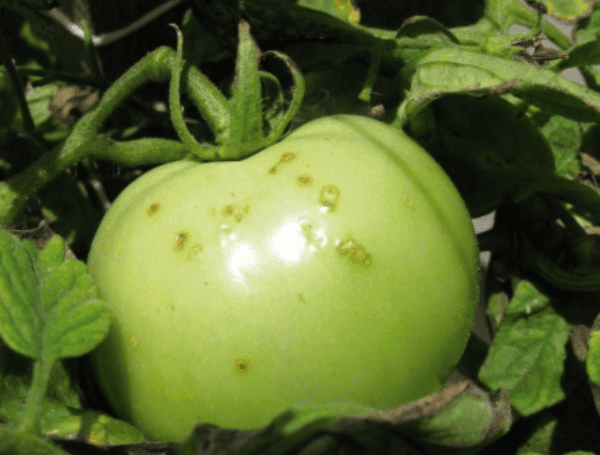A groundbreaking 12-year study led by University of Florida (UF) scientists has revealed the alarming rate at which a destructive bacterial disease is spreading across global tomato crops. The research, funded by the USDA National Institute of Food and Agriculture, highlights the significant genetic diversity of the pathogen causing bacterial spot, a disease that poses a major threat to the $1.9 billion nationwide tomato industry.
Bacterial spot, caused by various specialized forms of bacteria known as xanthomonads, has plagued tomato growers for over a century. However, the emergence of a particularly aggressive strain, Xanthomonas euvesicatoria pathovar perforans, first identified in Florida over 30 years ago, has now been found to have disseminated throughout the eastern United States and, more worryingly, across continents.
READ: Trump Administration Prepares Potential Farm Bailout Amid China Trade Tensions
The UF-led international team of scientists collected the pathogen from tomato plants in 13 nations spanning six continents. Their analysis revealed significant genetic variations in the bacteria from different countries, providing crucial insights into how this disease travels so effectively. The study pinpoints infected plants and contaminated tomato seeds as key vectors for the pathogen’s long-distance dispersal.
“This is a problem because when new genetic variation arrives in Florida, it may cause new problems, like more severe disease symptoms on tomato or spread to other crops like peppers,” cautioned Erica Goss, a UF/IFAS plant pathology professor and a corresponding author of the study. The rapid evolution and genetic diversity of the pathogen present a significant challenge to managing the disease, especially in hot and humid climates.
Despite the concerning findings about the disease’s spread, the study offers a beacon of hope for plant breeders. According to Professor Goss, “What this study shows is that the pathogen is diversifying – there are lots of different types of the pathogen out there, and it’s evolving quickly to respond to control measures, which means there will not be a simple solution. But having this genetic information is critical to the development of disease-resistant tomato varieties, which would help farmers avert bacterial spot.”
READ: Growing Population, Dwindling Resource: Many Floridians Unaware Of Vital Irrigation Rules
Gary Vallad, a plant pathology professor at the Gulf Coast Research and Education Center and a co-author of the study, echoed this sentiment. He explained that the detailed genetic information will empower scientists to better monitor the disease and develop more effective, long-lasting resistance in tomato plants.
“Past efforts to breed for resistance to bacterial spot were compromised by the introduction of new strains, even before the resistance was commercially deployed,” Vallad stated. “Knowledge of pathogen diversity allows us to refine our breeding efforts to target conserved genetic features within the global pathogen population. This should allow us to deploy resistance that is effective and durable. It also improves our ability to identify novel pathogen strains that could jeopardize commercial production and to monitor pathogen movement throughout the global production system.”
This research underscores the critical need for international collaboration and continued investment in plant pathology to safeguard vital food crops like tomatoes from the ever-evolving threats posed by bacterial diseases. The genetic insights gained from this study represent a significant step forward in the ongoing battle to protect tomato production worldwide.
Please make a small donation to the Tampa Free Press to help sustain independent journalism. Your contribution enables us to continue delivering high-quality, local, and national news coverage.
Connect with us: Follow the Tampa Free Press on Facebook and Twitter for breaking news and updates.
Sign up: Subscribe to our free newsletter for a curated selection of top stories delivered straight to your inbox.

